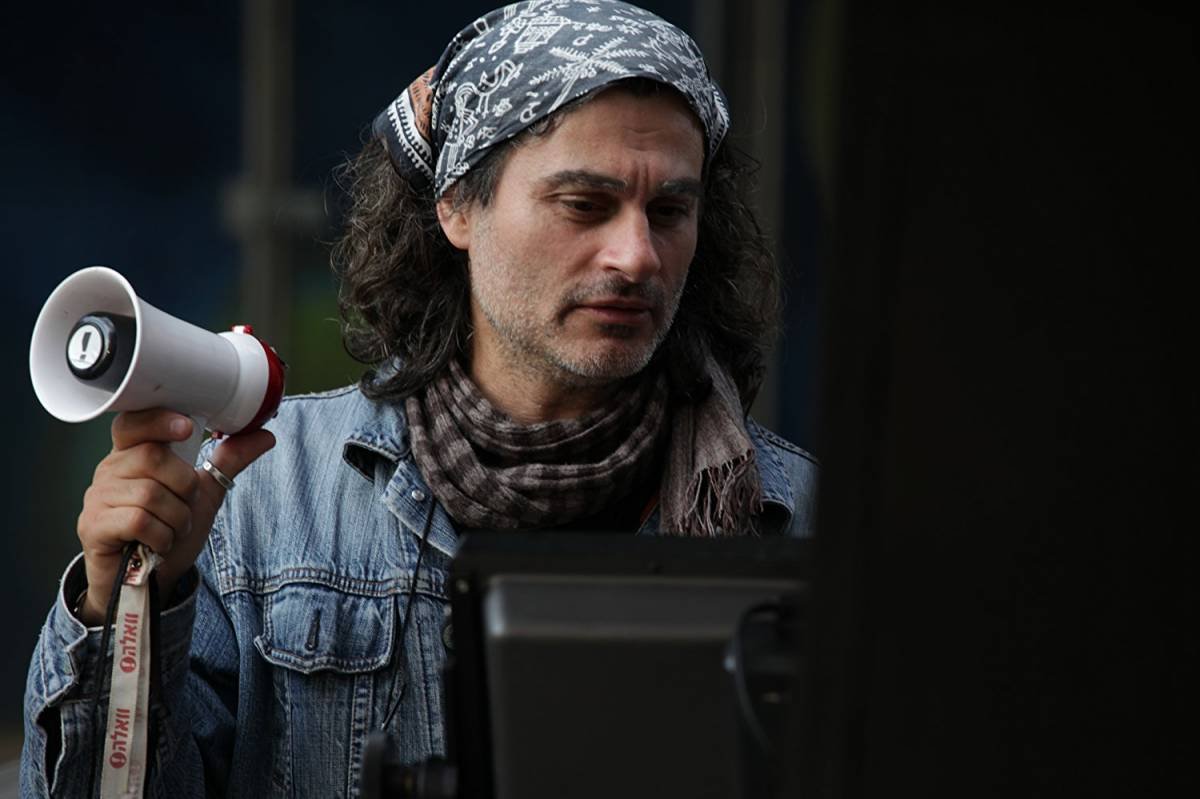Maybe it’s something he picked up as Quentin Tarantino’s camera operator, but Ziad Doueiri sure knows how to use his words. In fact his new film The Insult sprang from a real-life argument between the Lebanese filmmaker and a Palestinian plumber which snowballed so badly that Doueiri eventually told the man: “I wish Ariel Sharon had wiped you all out.”
“Fuck yeah, I said it,” Doueiri tells the Straight during a call from New York. “I said it because I was angry. I was angry at the Palestinians for having banned my movie.” Readers are encouraged to reserve judgement until they’ve either finished reading this article or seen The Insult, opening Friday (February 23). (Or both, preferably.)
In Doueiri’s Beirut-set film, a small dispute over an illegal drainpipe escalates to such a pitch that hotheaded Lebanese Christian Tony uses those very same words against too-proud Palestinian Yasser. The fight eventually lands the two exceedingly stubborn men in court, while inflaming the insistent psychic wounds of a 15-year civil war and dividing the entire country along its most sensitive social and political fault lines.
The Insult sees Doueiri returning to Middle Eastern subject matter after his 2012 feature The Attack, which was banned in 22 Arab countries because it was partly shot in Israel with Israeli actors. The anti-Israel activists responsible for that also lobbied to deep-six Doueiri’s new feature, and the director was detained in Beirut and accused of treason in a military court after the film played at the Venice Film Festival. The charges were dropped, and The Insult went on to become the Lebanese entry at this year's Oscars.
“I felt totally attacked and unjustifiably betrayed by the pro-Palestinian movement because of The Attack, and I developed a reaction which I still deal with sometimes,” admits the director, who was raised a secular Muslim in Lebanon by left-wing parents before moving to L.A. in the early '80s. “My own family paid a very dear price fighting for the Palestinian cause. To accuse me of being a collaborator, or a right-wing whatever…” Doueiri sighs. “It’s part of what we do for a living. We fight battles. I’m telling the truth and I will continue fighting. I want the truth. That’s it.”
It’s perhaps the film’s greatest virtue that it whipsaws viewer sympathy so effectively. By the end of this strangely uplifting tale, both men have reckoned with prejudices conditioned into them by the traumas of war. (Carried off beautifully, it must be said, by the Lebanese comedian Adel Karam and Palestinian stage actor Kamel El Basha, both telegraphing deeply conflicted and sorrowful inner lives.) Now factor in that Doueiri scripted The Insult with his usual writing partner (and ex-wife!) Joelle Touma, a Lebanese Christian who would have been considered the enemy at one point. “We come from camps that were at war with each other,” notes Doueiri, adding that the two screenwriters swapped roles, electing to handle the scenes sympathetic to their historic “enemies”.
In other words: this is a seriously personal work, inspired by a regret so deep that Doueiri made an entire movie about it. “People have said that what they like about that film is that it’s neutral,” says the director—who, by the way, apologized to the plumber and then defended him when he was facing the sack. “In fact, it’s everything but neutral. I do take sides, extremely radically, except that I change sides every 15 minutes. You take a story like this, you shake it left, you shake it right, you put it in a courtroom drama, you’ve got a lot of things going on for you.”
Georgia Straight, February 2018
